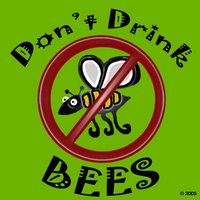Dada/Found Poetry is created by putting together words, phrases, and quotations from other sources such as songs, movies, advertisements, signs, TV programs, etc.
When you create Found Poems, you put words and phrases together so that the poem makes sense. When you create Dada Poems, the combination of phrases and words don't make sense; they are nonsense poems.
Possible topics for Found or Dada Poems:
- School
- Things I like
- Things I hate
- Favorite sports
- Newspaper headlines
- Weather
- Food
- Happy news
Examples of Found Poems:
APARTMENT FURNISHED
Bachelor
unique duplex
carpet, icemaker, microwave oven
fireplace
TV and AC
lakefront
555-1212
SHAMPOOING INSTRUCTIONS:
Wet hair
Massage shampoo into hair thoroughly
Leave in two minutes
Rinse
Repeat
Follow with conditioner
Example of a Dada Poem:
YUM!
Skiddles - taste the rainbow
Mentos - the freshmaker
Snickers really satisfies you
We love the Fishes 'cause they're so delicious
Double your pleasure. Double your fun.
Two for me. None for you.
Two scoops of raisins
in just one bowl of Total
They'rrrrrrre grrrrrreat!
The greatest taste sensation under the sun
We didn't invent the chicken.
They're made by elves.
Got Milk?
Melt in your mouth, not in your hands
Sometimes you feel like a nut
I feel like a Peppermint Patty
What do you want on your Tombstone?
Class Activity Instructions: Complete a poem (in a group or on your own) by piecing together words and phrases from newspapers. This poem should be glued attractively for display. The poem doesn't have to make sense, but it should be on one obvious topic. Make sure all your names are on your poster.
Homework Assignment Instructions: Complete a poem on your own. You may use words and phrases from magazines, newspapers, songs, commercials, signs, movies, TV programs, etc. The words may be cut out of magazines and newspapers or they may be copied down onto a sheet of paper. Your poem should be at least SEVEN lines long.
Labels: activity, dada, found, newspaper, poem, poetry, writing

